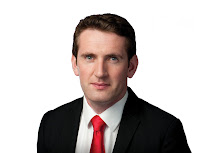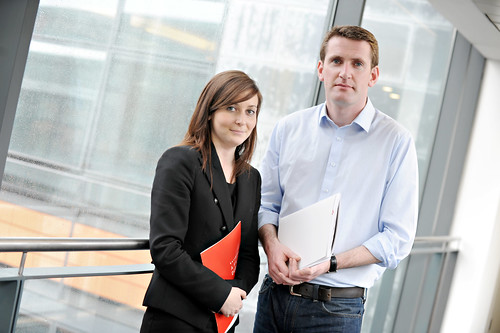Article on Murphy's Commission for Metro Eireann - December 2009
I write a weekly article for the Newspaper Metro Eireann. I am posting this one because of the depth of feeling in relation to the Murphy Commission Report.
I was born and raised as an Irish Catholic. Some of my earliest memories are of priests visiting our house and spending time with our family. I spent many childhood years, seven in all, as an altar boy in Malahide and dealt with many priests and indeed sisters of the Carmelite Order. Growing up in that tradition, which was replicated all around me in almost every household that I knew, there was deference to men of the cloth as conduits of Christ’s word on Earth. They were reverently referred to as ‘Father’ or as ‘Brother’ and we were always on our best behaviour when they were around us.
We used to deliver parish envelopes to selected doors in our housing estates. My family members were ministers of the Eucharist and collected the baskets at mass every Sunday. We as a family knelt together daily every month of May and prayed the May Devotions and also stood, again as a family, together to say the Angelus. We were so proud of my aunt Maura who entered religious life and who has spent a life administering to some of the poorest of the world’s poor. I remember writing in my confirmation scrapbook as a twelve year old in sixth class that I was still considering whether to enter the priesthood or not. The Catholic Church, in essence, was important in the childhood of my generation.
Unknown to me at that time was that the Catholic Church was entering every major political debate at the time as Irish society was attempting to stir into a new direction. The Catholic Church, and I am resisting the temptation to call them simply ‘the Church’, was backed by the faithful masses as they outlined sternly the moral evils of divorce, abortion, contraception and homosexuality. It was clear that the Catholic hierarchy had a suspicious view of the intentions of the political classes and considered themselves to have the greater mandate of the gospels and of the most high.
This was in keeping with previous interjections of the Catholic Church into the mainstream of political debate where they were used to having more than a sympathetic ear. The former Fine Gael Taoiseach John A Costello once stated at the height of the Church-State row known as the ‘Mother and Child Scheme’ that he was ‘I am an Irish man second: I am a Catholic first and I accept without qualification in all respects the teaching of the Hierarchy and the Church to which I belong.’ During the actual Dáil debate he said, ‘I, as a Catholic, obey my Church authorities and will continue to do so.’ This was not an exclusively Fine Gael disposition, in fact it is a central part of all election-cycles to be seen to be good to your local church, to be a good mass-attendee and above all else to be seen to be shaking hands at the church gate.
I am now a primary school principal of a Catholic school where we teach the sacraments of Communion, Confession and Confirmation as part of the school curriculum and religion classes are also taught daily. The local parish priest is the automatic choice as the chairperson of the Board of Management and indeed my appointment as principal was sanctioned by the Archbishop of Dublin, Diarmuid Martin. The church still has a daily influence in the lives of the young, an influence which until very recently the Catholic Church resisted in releasing absolute control over. The Equality Act which prohibits any form of discrimination in the workplace, does not apply to Church-run institutions, therefore a homosexual teacher or an unmarried mother who is also a teacher, can technically be dismissed on the grounds of living a lifestyle contrary to the ethos of the Roman Catholic Church.
I am also next month due to be married in a Catholic Church and all my friends and family will gather together to watch me and my intended exchange vows under the watchful eye of a priest who will formally accept our vows and sanction our marriage.
I say all these things to give a mere indication of how much the Catholic Church has influenced and continues to influence the lives of many Irish people, whatever their personal spiritual beliefs. It is clear how it has played a large part in my own life, from my childhood, to my professional career and to my personal life. Yet it is a church that I am ashamed to be a member of, and embarrassed to have been born into. The Ryan report and now the Murphy Commission have eliminated any mandate or authority that the Catholic Church claimed to have had in promoting any good in Irish society.
The findings of the Commission of Investigation into the Dublin Archdiocese have been well documented by this stage: the deliberate protection of Paedophile priests; the blatant disregard for the rights of children or their childhoods; the interference with Garda investigations; the repositioning of priests from one parish to another as an answer to complaints rather than expelling them from the priesthood altogether; maximising the emotional authority they held over agents of the state so that they could protect themselves, and most importantly in their eyes, their assets.
If any other organisation was involved in such deception, such lies, such abuse and such deliberate protection of paedophiles, they would have no future. If the institution was a sporting one for example that was guilty of these practices, they would lose all support from the public, all sponsorship and would most likely demand wholesale resignations in a vain effort to regain respectability. The Catholic Church still paradoxically, disgracefully and arrogantly feels differently. Yes they will apologise, but when asked to cooperate with both the Ryan and Murphy inquests, they acted with less than good grace, and certainly not like an institution that feels it needs to change.
But Ireland has changed. My attitude to the Catholic Church has hardened to such a degree that I’m unsure whether I can ever enter a Church building again with the same reverence that I had as a child, or with the same dignity that my parents continue to have. I have deep sympathy for those, like my parents generation, whose faith is undimmed but who have been absolutely betrayed. Maybe I should learn from them, and try to build a new Republic where we never hand authority over to unelected agencies ever again. But then I wake up and return to work, and I know in my gut that nothing has changed. Maybe not yet.
skip to main |
skip to sidebar


One Year On
Contact Aodhán:
Constituency Office:
203 Philipsburgh Avenue, Marino, Dublin 3.
(01) 857-4020
aodhan.oriordain@oireachtas.ie
Twitter:
@AodhanORiordain
203 Philipsburgh Avenue, Marino, Dublin 3.
(01) 857-4020
aodhan.oriordain@oireachtas.ie
Twitter:
@AodhanORiordain
About Me

- Aodhán Ó Ríordáin:
- Politicised by his experiences as a teacher in Sheriff Street, Aodhán was first elected to Dublin City Council for the North Inner City Ward in'04. Re-elected with a huge vote in the Clontarf Ward in '09, Aodhán is a consistant advocate of the most vulnerable in society with a track record of strong representation and practical solution-driven politics. In the 2011 General Election, Aodhán was one of 17 new Labour TDs elected to serve in Dáil Éireann.
Aodhán With Cllr Jane Horgan Jones

Selected Links
Labour Links
- Eric Byrne TD
- Cllr Aidan Culhane
- Joan Burton TD Minister for Social Protection
- Cllr Michael O'Brien
- Dominic Hannigan TD
- Kevin Humphreys TD
- John Lyons TD
- Cllr Keith Martin
- Derek Nolan TD
- Cllr Seamus Ryan
- Cllr Sean Ó hArgáin
- Cllr John Mulvihill
- Sen Phil Prendergast
- Cllr Pascal Fitzgerald
- Cllr John Gilroy
- Deputy Joanna Tuffy
- My Labour Party Page
- Labour's Flickr Gallery
- My Flickr Gallery

